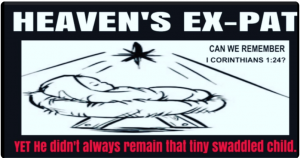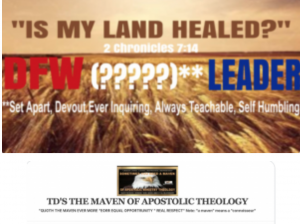
NOTE: this is long. Binge read. This is sorting out Christian Bible men and women, but also false mixed with true teaching: which is evil eye Levitical Patriarchism. The rest of the is sure to be disturbing , will mainly be on MINISTRY AI AND I
for Sister Taveau wants to be critical, fair, objective, non biased.
https://www.ministryaiandi.com
** The majority of this PART 1 is my backstory, set up and non gender biased declarations.. so you won’t ever think that this “she” is just “one more bigoted man hater”
(no poison pen ever…guaranteed)
MINISTRY AI AND I**
PART 1 “TROUBLING THE CHRISTIAN PATRIARCHY”
SET UP
Long life, Luke Eyewitness, Practical Learning, Blessed Family Background,
Fine Tuning Definitions (Pure untainted, fear of the Lord receipts)
1980’s till now: I earned several PHD’S on this GIANT American Learning Curve PHD 1) “Pretty Hard Days”
2) PHD “Piled High and Deep” and PHD 3) My DFW DEGREE “Dallas Finest and It’s Worst” (2005-2020)
Sung to the tune of “Knock Three Times” by Tony Orlando and Dawn “Jumped 3 times in the hallway after service” (with more than a few dark skirmishes in them “occult witch watching” type mega, micro defiling pews)
“The Fruits of the Spirit are ABOVE every gift of the Spirit” Ministry Cross Body Unity
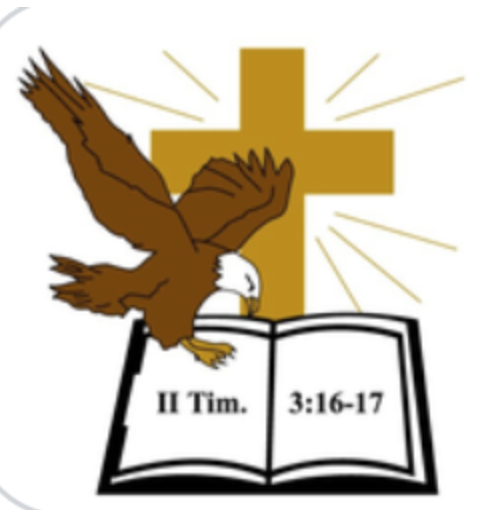
2 Timothy 3:16-17 KJV (see our logo above)
“All scripture is given by inspiration of God, and is profitable for doctrine, for reproof, for correction, for instruction in righteousness: That the man of God may be perfect, thoroughly furnished unto all good works.”
(C) 2025 Taveau D’Arcy All copyrights reserved under international copyright laws, in conjunction with AI
POSTING THIS LP OVERVIEW PERSPECTIVE
“Mega Mini Shekel U Pharisee”
BEFORE THE SERIES: MY HONOR, RESPECT AND GOD’S HEART FOR CHRISTIAN (ALL) MEN
I want to express my respect for all men—of every age, race, style, and kind—and to affirm the value I place on each of them. As I evaluate theology and First Church practices using AI for research, including Christ- and Paul-accepted traditions, I want to be clear that I am not accusing, targeting, trying to best, or disrespecting anyone, nor am I attempting to usurp or take the place of any man or his God-given authority.
In this LP MINISTRY series, I will later discuss biblical perspectives on Adam and Eve, Christian views of male and female roles, authority, and St. Paul’s admonition about “women being silent” in the church. While I will use AI to research big-picture church history for objectivity, I will not ask AI to interpret the Bible. I will present findings for readers to reflect on (“Selah”) rather than imposing autocratic dogma. I do this as a woman who walks in the peace and freedom of Paul’s encouragement in Philippians 2:12: “Work out your own salvation with fear and trembling.”
BOTH MY GODLY PARENTS
I also want to honor my late father, Sr. Pastor Miley Kimball Johnson, Jr., and my mother, Naomie Sandys Simons Johnson, who are both now with the Lord. I honor their dear Christian parents, as well as their Godly, contented grandparents before them. Additionally, I express my deep respect for my aunt, her husband, their family, my cousins, and my great sister. In all my many years, I can look back and say with confidence: I never once heard any of them accuse, word curse, gossip, malign, show bias, display racism, or envy any other human soul.
When I reflect further, I also recall no political bias or prejudice regarding gender, age, education, or class. While such biases certainly existed elsewhere, I never once recall hearing them within my family as a child, teen, or adult. We each voted according to biblical principles, and from my recollection, our approach was apolitical—voting by issues, not race, gender, age, or party line. I honor this legacy of wisdom and discernment.
This foundation of love, honor, and respect guides my journey in these matters.
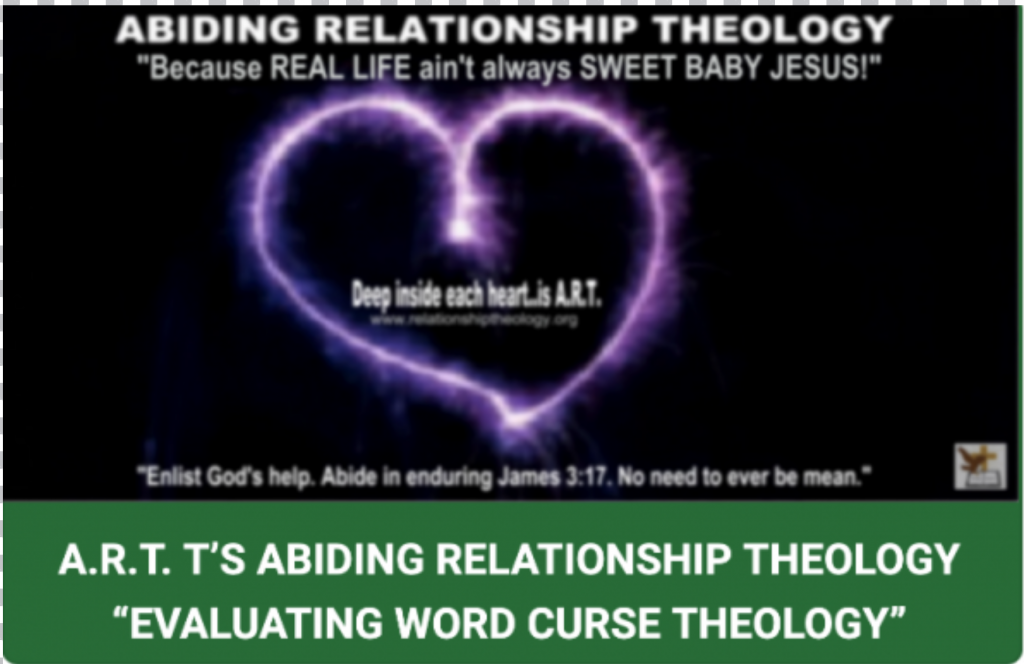
By product of all this: https://www.abidingrelationshiptheology.com
OUR NEED TO DEFINE CHRISTIAN “MEN”**
**This is the only “Ask Chat GPT AI section in this Part 1:
Taveau realizes the major bias toward, against women and to make sure that her many ministry points are not taken as accusation or triggered ‘anti any sort of man ” bias, she has asked Chat GPT AI to define the following “gender words” (for this standard Bible use of these, tradition but also current modern ministry applications:
Chat GPT Ai defines the following for this apostolic training:
Definitions
-
Men/Man (Biblically Speaking)
- Hebrew (Old Testament): ‘Ish’ (אִישׁ), meaning “man” or “husband,” often denoting strength, maturity, and responsibility.
- Greek (New Testament): ‘Aner’ (ἀνήρ), referring to a man with integrity and responsibility in family, church, or community.
-
Patriarch
- Literal meaning: “Father-ruler” (patriarches in Greek). Historically, this refers to male leaders such as Abraham, Isaac, and Jacob in the Bible. True biblical patriarchs were called to lead under God’s authority with humility and care.
-
Matriarch
- The female head of a family or tribe, representing wisdom, nurturing leadership, and spiritual guidance (e.g., Sarah or Deborah in the Bible).
-
Levitical Patriarch (Taveau’s coined Term)
- Refers to men operating under the spirit of hierarchical authority seen in the Old Testament tribe of Levi, often characterized by rigid control or legalism without grace.
-
Levitical Patriarchism (again T’s teaching term)
- A term for hierarchical male-dominated systems, especially in Christian ministry, that mimic Old Testament priestly control without incorporating Christ’s servant-leadership model.
- Marked by legalism, harsh judgment, or domination.
The Patriarchy (General and Contextual Meanings)
T inserts this purposely: All of this “apostolic ministry training” is to teach discernment in “meeting men” compare in depth”many Christian men in ministry and business, family. “The Christian/Patriarchy in ministry business and family and “The Levitical Patriarchy in ministry business and family”
-
The Patriarchy in Ministry
- Definition: A system of male-dominated leadership, often rooted in rigid, traditional authority structures.
- Concerns: In some religious systems, patriarchal leadership can manifest as exclusionary practices that marginalize women, suppress differing voices, or enforce authoritarian leadership styles.
- Biblical Response: True spiritual leadership should reflect mutual submission (Ephesians 5:21) and equality in Christ (Galatians 3:28: “There is neither male nor female, for you are all one in Christ Jesus”).
-
The Patriarchy in Business
- Definition: A hierarchical structure where leadership roles are predominantly male, often with decision-making power concentrated at the top.
- Implications: This can lead to a lack of opportunities for women or minority groups, unequal pay, and workplace biases.
- Solution: Ethical business practices promote diversity, equal opportunity, and leadership based on merit, not gender.
-
The Patriarchy in Secular Society
- Definition: A societal structure where men traditionally hold primary power in politics, economics, and social roles.
- Modern Challenges: Many secular movements seek to dismantle entrenched biases and promote equity across genders.
- Balanced View: Equity doesn’t mean erasing roles but fostering respect, fairness, and shared leadership across societal structures.
-
The Patriarchy in Religious Settings
- Definition: In some religious settings, patriarchal leadership may result in strict gender roles, limiting women’s participation in leadership or ministry roles.
- Potential Issues: Overemphasis on authority can foster legalism, judgment, or exclusion rather than encouragement and discipleship.
- Biblical Example: The New Testament highlights women in prominent ministry roles (e.g., Priscilla, Phoebe), suggesting that early Christianity embraced diverse leadership.
5. “Boys Will Be Boys” Christian Ministry Subculture**
- The phrase “boys will be boys” in the context of a Christian ministry subculture refers to a mindset or attitude that excuses certain behaviors, often linked to gendered expectations, under the premise that men (or boys) are naturally predisposed to act in a certain way. In this subculture, behaviors that might be seen as inappropriate or harmful—such as lack of accountability, disrespect, or entitlement—are dismissed as “just part of being male” or as natural male behavior that doesn’t need correction.
- In ministry circles where this mindset prevails, it can result in a lack of responsibility for actions, especially when those actions negatively affect others. This attitude often reinforces harmful stereotypes about masculinity and can perpetuate a culture of control, exclusivity, and a failure to fully address issues like emotional maturity, interpersonal boundaries, and equality. It can also lead to the marginalization of those who don’t fit the stereotypical mold, especially women, as their contributions or concerns may be seen as less important or legitimate.**
**TD interjects: Read LP Eli and His Two Ministry Sons I Samuel 1-4 for the worst example (for those in the older Bible teaching generation: These were not cross carrying members of the Promise Keepers)
TD SUMMARY
Taveau sums up all of this as SHE has observed, descending from a NON BIASED, NON LP Pastor Father and wise similar business, ministry large family, men are equal to Godly women and vice versa. Note: her father raised her respected. He was not an Patriarch but. a easy going, hands on great father, an authentic Christian gentleman, who loved his wife as the Bible says and played, worked with her and us, as “unit” “team” “co-laborers”
Apostle Taveau’s own version of “defining” these Christian men (mostly ALL Caucasian in these wide USA grass roots ministry experiences:
When you encounter a group of men, work among them, attend a church or ministry, or join a network or meeting, there are typically various types of men. Some are accepting, non-biased, and non-sexist—what I would consider “family men,” who possess dignity and an anchored disposition. These men are trustworthy and non-gender-biased.
However, when you enter a “Patriarchy,” it can feel like a man’s club—like a clique, even with a cult-like energy. In these environments, I often find myself typecast and excluded, not only as a woman but as part of a group of people who are not their preferred “type.” The Patriarchy can take many forms, with men of different sizes and colors, yet they often maintain a specific, exclusive energy.
Within ministry circles, I see this same Patriarchy, one that rules with an iron fist,uses of lot power to control, shows partiality, and often has a bias against atypical “non LP ” certain styles of persons and majorly (white) women.(why do I say white women. I have studied and puzzled about this nearly 40 years, and realized these are fearful of being accused of being “racist” so they lay off most dark skinned leader women (her view). It usually only feels comfortable with it’s own race, style, even “looks.” (which by participating in doing such, makes it biased, exclusive and have more traits of “the world” than Jesus Christ’s accepting CHURCH.”
In the various, United States, usually among ‘prophetic charismatics” which view themselves as “elite” I find that God uses me, to “trigger many of them” on a regular “newbie visitor, leader female, basis” It does not bother me, usually, however if they are the Patriachian** Hierarchy, LP Misogynist “kinds” I get “evil evil “witchcraft micromanaged, inner deep scan (divined) and never spoken to. I note this on behalf of many other prophetic nice women..who are word cursed, objectified, sometimes mean streak manhandled, for no reason of than “showing up” and “having that certain inner vibe” they name you a “Jezebel, witch or worse (“harlot”). ** Article on Patriacians will follow; basic meaning “aristocratic, elite”)
Repeatedly, since uncovering some of this starting in late 1980s’s one, when it was first very mild but then as “famous Christianity” and the many celebrity “niche specialist” blossomed into giant throngs of divining similar, some cult like ‘devout true followers” the charismatic, pentecostal ‘tribal , clan men” seemed to find their similar identity in a lot of this and this “accepted white against white, ‘anti types of women, in addition to the Pauline Levitical Legalism, also Eve was deceived, let’s accuse ALL of the weak willed “easy prey” Little Women ..which I noticed full force for my time EVER in the Deep South West (again) Levitical Patriarchy famous celebrity “Neo Phariseeism” seeming “nouveau riche Famous Face self styled (elite)systems”
In my case, I make a continual effort to consciously and purposely avoid having ANY known human person, ministry, faith or GENDER BIAS(or racist)
Since Jesus People non elite days..this respecting individual, who is real true sort of person, has actively tried live circumspect, and fair..meaning ” my entire grown up life.”
However, by God’s grand design, “for the sake of His Call,” I have found myself triggering no other form of Christian, non-Christian, or Christian ministry person except those adhering to certain patterns—specifically, those involved in a “one human covering, submission, and white Levitical Patriarch Big Boss” style. Each and every time, when I examine their affiliations, race, style, doctrines, pedigrees, and mentoring, it becomes evident that almost all of them turn out to be chief office “turf owners,” entrenched in a Levitical Patriarchal cultural nest.
Again, I need to say MANY might be as the I Samuel Eli and Predatory Misogynist Sons..but most are not. They are shallow and merchandising, and on the go with ‘handy formula” And though this person has never been targeted, stared at, avoided, scowled at and scanned, by any African heritage,** also dark skinned humans, (Aside, yet I did had ONE tiny relationship, decades past, with authority who intentionally went behind my back, never consulted me, betrayed and ruined me… but that was the only ONE in nearly 40 plus ministry Front Lines successful (not meaning money) well preserved years.
I have repeatedly, ongoing, taken deep personal inventory and noted “the difference in Western European deep ancestry types of many persons. I view myself as “far more multicultural, energized, rhythmic and ‘global” than these. I call my self and ones like this person WE GLOBALS (accepting all, not demanding to be OVER them) I name these others a ministry, subculture who demands to “rule OVER Us” as the “”We are the Only Ruling World” and the We-Centric Colonials.” (My opinion) And while each one in every human subculture is unique, and hand crafted and beloved by God…when I am among Levitical Patriarchs and Levitical Matriarchs, I am continually spied from afar sitting out in the vast audience, zeroed in on then cult watched.
I notice that while I am not gender biased or racist..that if/when that happens, I “trigger” quite a big ministry STEREOTYPE ..which was exceedingly difficult at first..but which I now embrace, as a SENT ONE… on behalf of the true Christian body.
One thing for certain….I do not seem to “fit ” the Boys Club, Girls Club…and/or occult/ cult type. But I can leave them and forgive them, but grow and learn how NOT TO BE… 2 Timothy 3:1-8, 1 Timothy 6:5 are my Pauline instructions.
NOTE: I realize that I am now enjoying genuine “breakthrough” yet I still abide in “relationship Isaiah 1:18 for each and every person”
While they may be diverse in background, they rule with somber control, creating an atmosphere that I often feel triggered by and observe closely.
Just sharing a Valid Perspective.
“Once you’ve been mauled by lions, it makes it easy to detect their scent”
Original LP Levi Prophetic Roots teaching, 2008 Murphy, TX
“Eli’s coming, hide your hearts now” I Samuel 1
2005-2020 Blessed DFW
“Beware of the strange children” Psalms 144:7 and 11
Deep South (Collectively, Elite Precision WELP)
With that now stated, we shall start to settle in. I will hit those fine tuning points later in another part of the SERIES.
BREAK
FUTURE CHRISTIAN TRAINING
MY OWN BACKSTORY ABOUT “WHY” ALL OF THIS SERIES
I was never raised in, or around, this sort of “church/ministry ” big culture. It came after me, as I just sat there and watched a service where they spoke in tongues, which I had not been raised among or around. So I was fascinated, but had no clue that Christian WOMEN are their apparent “night mare.
DEFINITION: My own coined term Levitical Patriarchism (LP) L Patriarchism, L Matriarchism, also WELP Western European Levitical Patriarchism.. (Future chapter :)Prophetic tribal roots LEVI before he matured and repented of his resentment to his father’s authority, his anti woman resentment,
Therefore this starts a ‘grass roots, man, woman,Sin Conscious Adam and Eve, plus ministry, authority “GIANT” Levitical Patriarch exploratory, assessment Doctrinal Explanation, Series. I do not disrespect, dislike or rumor about, back bite, target, accuser or pray against any one of these. Yet they do that to me..and many many non elite others. But this “her person” is NOT one bit against the MEN or the snide,scowling L. Matriarchism subservient mean women, it is for FRUIT..
fruit that will woo and respect ALL the many kinds of aliens, strangers and human persons “angels unaware” who may “try to visit’ and attend, to realize about Christ, the Holy Spirit, mature worship and moving in the gifts, Book of Acts.
THIS IS WHY I speak very forthrightly, I a bottom to top leader dirth…and in dire want to REFORM.
Hence as a true prophet, Holy Father God needs this to be delivered from His ministries. It is about and For HIM that I now disclose non biased Bible based “realistic thinking” which will preserved Jesus save haven Churches, spare many and hopefully deliver this Big Ishmael anti female subculture.

MOTIVE
Personally, I train “against” Christian leader bias and will discuss a significant human subculture that I have named, defined, and trained on for over 10-12 years. This subculture has expanded beyond the secular world, business, and various forms of leadership and has now infiltrated the “blessed” Christian world. I will train on this in detail later, but I want to take a moment to respect, praise, reassure, and safeguard those who resemble my late father and other unique Christian and non-Christian leaders of all races—especially “my own.”
The reason for this distinction is that I detect a remnant of a “slave-owning” unholy undercurrent. However, I can discern the “honest, true Bible character” of authentic ministry pastors and pure authority ministry patriarchs—those family men from various backgrounds and dispositions, whether they pray in the spirit or not. I wish to honor and abide by the definition of these men, whom I call godly, real men. Some may be patriarchal (stable anchors who are wise, often breadwinners and family-focused) and are truly “about God the Father’s business in ministry.”
However, it is essential to differentiate between various degrees, strengths, and styles of “Levitical Patriarchy” (LP). Some of these patriarchs are more aristocratic, Old Testament law-driven, and controlling in a governmental “Big Boss” manner. While some are more pure in motive, others fall into what I call the “governing shepherding general move,” which I will explain later.
I use various terms to describe these styles, ranging from class-conscious ignorance to elite, sin-spying false authority figures—what I call “Big Wig Patriarchs.” In the more charismatic realm, we also encounter “WELP,” or Western European Levitical Patriarchism, and subservient “barking L Matriarchism.” These styles often cross into shepherding movements that have gone wild, including psychic occult tendencies, “witch-watching” false authority, and cult-like behavior (albeit often well-intentioned). The worst representation of this is found in 1 Samuel 1:1-4, where Eli and his capable but sinful sons faced God’s house-cleaning judgment.
I will delve into all of this in this mini-series.

www.abidingrelationshiptheology.com Abide in enduring relationship JAMES 3:17 and you, we’ll never have any reason to be MEAN.” (Assess, evaluate each other by First Church James 3:17 “pure, peaceable, easily entreated, full of mercy and good fruit, without partiality and without hypocrisy“
MY APOSTOLIC TRAINING DEFINITIONS:
Grass Roots Hard Won LP Studies
Please note that “WELP” refers to “Western European Levitical Patriarchism,” while “LP” represents my mature understanding—developed over 35 years of firsthand ministry experience and cross-cultural study in the USA. I have identified these traits within “certain ” (surely not all) NAR (New Apostolic Reformation) movements and leaders who consider themselves “over the rest of us” in tithing Christian ministries. This includes the “apostles in the gates of the city” movement, the Old Boy 1970s shepherding movement (a well-intentioned yet legalistic endeavor), and others. While the top head overseers may or may not align with these tendencies, many grassroots leaders proclaim themselves as “under” famous ministers or pastors, using terms such as:
- “We are ordained by…”
- Licensed under”
- “We are endorsed by…”
- We have been “sent out from”
- “He is my spiritual father…”
- “We are a skilled “member” of the TV world wide famous ministers’ pastor’s, bishop’s or prophet’s, chief apostle’s “official club…”**
- ** frankly, it’s a status conscious thing for the most part, however, also a great part of a human’s person’s seek “identity”(inner security, peace) and also fatherly, brotherly comradarie, emotional, spiritual sort of bonding, chief acceptance,and a ministry, and family, human, feeling of ” validity” So there is nothing the matter that UNLESS it gets’ ego, high horse, false doctrine, super spiritual and divisive “I am ONLY Pro Faith Filled Paul” and ‘We are only PRO the Famous Gifted Seer Prophet So and SO”..”ambitious celebrity” (which is this former charismatic’s own particular NIGHT MARE)
- and it’s also, simply a matter of balance, teaching and maturity as it involves primary “Body Of Christ RELATIONSHIPS” (not one bit mammon centered) which are supposed to Community (all equal See Paul Ephesians 5:21, 4 entire chapter) Not one bit tainted with “respecter of certain individuals ( elite, exclusive nor biased).
- PS Also, within each elite ,cloistured group, one has to experience their OWN form of both old and new experienced tradition, which is Phariseeism. And this is each movements, righteous church, clan, clique or cult…even occult, religious “sect, brand,group” a set of The TO DO’S and DON’T DOES.. which I make point of stating that these bring “accusing” ‘backbiting” for they all set a Particular high , standard for THEIR ONE TYPE OF MINISTRY Group yet else realizes it at first), I state this as my coined teaching term: NEO PHARISEEISM and TRENDS OF THE FADDUCEES (new, popular, even Hollywood type, ” required rules” which are generally based on popular culture, traditions enhanced by TV famous Christian portrayals of ministry): These may or may not be accurate to the Bible and Jesus Christs, Paul’s apostolic teachings. Bible scriptures.
NOTE: That this is not biased or accusing of those. Rather, I grant great grace to these, for not all were raised by mature healthy ministers, And I was not raised anti man, anti woman, anti race. That is a huge factor in some of these, potentially. I was given the great grace to be raised well tended, valued and respected as a HUMAN PERSON first not “JUST” a female (no body was like in my whole childhood memory until “this” prophetic discovery
All of this will be explored in greater detail later. WE ARE NOT AGAINST ANY OF THESE,but aware of much biased teaching, no respect for certain peoples and a propensity to demean women and minorities (NOT ALL but too many)

MY FAITH BASED UP BRINGING
So I want to explain this Human Person and the Reasons FOR all of this leader commentary.
BUT FIRST…SHE WAS CALLED
I was called by the Lord at the end of the Jesus People movement in 1976, as the charismatic movement spread slowly and calmly throughout the United States. On a special Sunday, I sensed the Lord speaking to me. The Holy Spirit impressed the following upon my heart:
“I want you to study the doctrines of Christian ministries across the USA—of all races, styles, men and women, speaking in tongues and not. I want you to understand their doctrines, pet peeves, red flag buzzwords, music, and dress style. One day, in the Last Days, I will have you build bridges of understanding within My Body.”
Later, in 1986, God called me into full-time public ministry. While in Virginia, I saw the words “Encouraging Word” in my spirit, and the Word of God opened to 2 Timothy 3:16-17, which is still part of my logo. Although I laid the name Encouraging Word down after 15 years due to domestic violence, I never stopped following the call. I adjusted to unique challenges and matured, becoming bolder in my faith (more on that later).
.
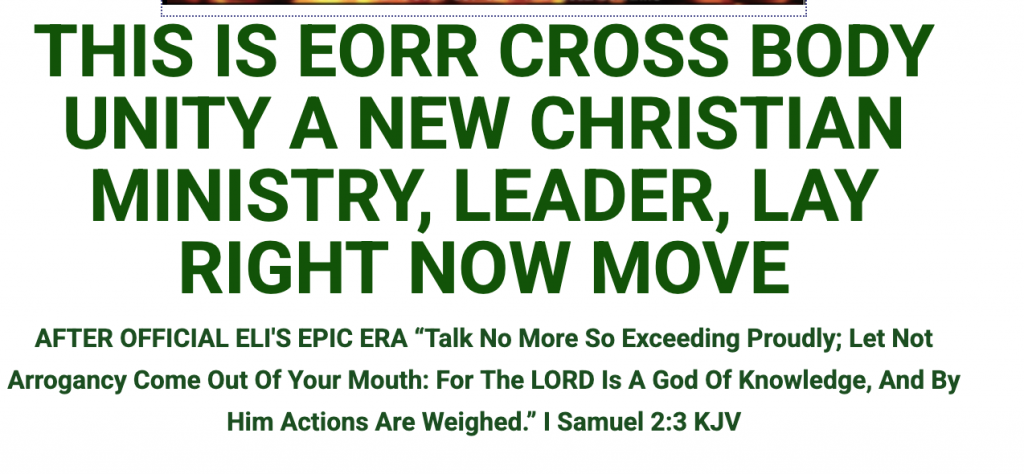
https://www.crossbodyunity.com
PART 2
ABOUT CLASSIC, TRADITIONAL BIBLE MALE AND FEMALES
What About Women in Ministry??!!
My Own Thoughts on that? Philippians 2:12 “To each their own” Because I will do what God’s says despite but not in defiant way or mean controlling but because I’ ve been God(Ephesians 1:17) downloaded and Holy Spirit “revealed to” and have been given the Scriptures to support it. (To give a prototype for the future Church if need be)
For clarity: I was not raised “under the Law.” I saw my mother, grandmother, and aunt as humans first and women second. They were all educated, contented, thoughtful, deferring(“submitted)—deferential and quite joyful—to their husbands and those around them. Yet it was a holy, responsive, caring, and normal submission.(not even discussed as it was passed down in Christians loving homes by osmosis) No thought, you just did it. And they were ministry family oriented. And they were lively, expressive (not hardened) and not the least competitive. I never saw anyone looking at sports or attending a team game. Also, they were nature lovers,readers, local travelers, and gardeners and we lived near the ocean in VA Beach for a while. Some were more adventurous than others. Most were scholars and teachers, but none sought Christian celebrity or status. They were the definition of unsung grassroots leaders—something I strive to emulate today.
Yes, the Bible says that some may achieve renown to have greater influence, but that’s entirely different from the mindset of 1 Corinthians 1: “I am of Paul” vs. “I am of Apollos.” I deeply appreciate all ministry levels but particularly treasure the leader’s Acts 17:17 style, which I call the “barista fellowship realm.”
And Bible views, leader arguments about”Women in Ministry” not going to be my problem.
It’s all my and your ‘Christian choice” I am a proponent of Paul who says to “work out YOUR, MY, OUR salvation with fear and trembling” according to Philippans 2:12, which is what I do.
For clarity: I was raised LIBERATED ( rather than “BACK under the Letter of the Old Timey Country Law.”) so even back in the rebellious “conscious raising days” of national, televised “reform” even “conformist rebellion” I was growing up into a real women, who never felt any need to be more than I really was.
Again, I was not raised stifled, biased against or accused (I must say “back then”) lt was around those Viet Nam War days, I never once identified with violence or “Women’s lib ” *for I was liberated, means: had only experienced REAL RESPECT and being VALUED for who I AM by all the men in my life..(all men, back then,blessed family, church,school, friends..and at that POINT, being so “unscathed ” by attack from “mighty abuse, dysfunction” I could fathom WHY(popular Gloria Steinem plus the suffragette type movement it was needed. ) I have tons more respect for G. Steinem, now. But have to focus on the Bible word of God and training, and “Christian human’s Liberation’ from WHAT? The Accuser Law, Ministry Bias, False Religion and self righteous Clubby Materialism. Plus my own “self, heart” to keep it pure before the Lord.
Yet that “knowing most of their reasons WHY (rude, targeting, abusive, mammon centered DISRESPECT appallingly occurred to me..but much later..after Big Time Society Materialism, TV and Hollywood, Making It Big and Rich in the world, please ornery Christian Wannabe the Next Celebrity” came into the worship, Fines, teaching True Church (mostly the charismatic, which I was back then a part of until 2012, when I gave up my 501c3, removed myself at God’s clear direction from being a “charismatic” ( I still go for the gifts, I move in the spirit but I am now OUT OF THE SHOWBIZ, ACCUSING, GOSSIP and OCCULT WHITE WITCHCRAFT ( 1 Samuel 15:23 false authority, spiritual wickedness, using, playtime)which as seeped in an had driven out “the NORMAL HUMAN PERSON” chief values.
I had met persons who at first appeared to fake a half hearted smile but then refused to relate, to speak but instead would”read me” (or appoint 1-10 of their skilled pet persons to do that…meaning the Book of Acts, 2 Kings 6:12 crew, gone awry, …and targeting this person and many calm NOT WE CENTRIC LP OTHERS..via their “prophet office cult gift’ T
By God’s Grace, nature I can ‘prophetically discern, and Holy Ghost “sense:when put me on their black list without even one standing next me to chat, to get to know or to hear by own Cross Body Unity calling Bible theology. WHY? Due to their ‘fruit”
And I can now perceive and discern “white witchcraft”(mostly sly controlling undue false authority) false religion, the divining religious, ‘familiar spirit” by their looks, fruit, doctrine and lack of healthy aware relationships.
So I observed “Human ministry folk” mostly by their ‘fruit” “their doctrine” their relationship respect’ their values and their name brand perceiver “kind.”
USA similar kind doctrine: I also noticed many (locally) who did the same thing to many nice persons. And it was then the Lord told me “if you encounter something that hurts people, My Good Safe Name 3 times or more in different ministries: you are to take that as as sign that I see a lot more of it, and that I am calling you to teach on it. (Which I do). (1991 ruinous relentless evil eye, sin spying gossip ministry and WELP began to come up in “apostle” “spirit of prophecy” kinds of groups (I went from VA, to Florida, many times to Tulsa, OK, NC and SC, MO, AL, 15 years spent in Dallas region, meaning TV media, Hollywood and reality TV “faking it till many make it’ came along.

TAVEAU’S RESULTING DOCTRINAL SELF DEFENSE
“Whatever doesn’t kill you, gives you much great teaching fodder” Sister T
TO CONTINUE TO RALLY, TO BE IN “GOOD CHEER” “JOYFUL” which is my NORMAL state. I had to learn ministry doctrines, Holy Spirit, Bible, Law, Jezebels and “witches’ (To know that I wasn’t that kind when they lied and told false witness) But it was not, is not NOW “about ME” it’s about HIM the Name of Lord Jesus Christ and governing false religion, by doctrine and enormous ministry subculture..so I will get into that later, when I use Chat GPT AI and ask object First Church realistic Questions.
ONCE AGAIN I could not have done this (in real life, with natural strength, will or cunning) had it not been for the GREAT GRACE of having many normal, true honest Baptists saved Christians in my life, before I went to study all of this more pentecostal ‘true’ moves. But it has been the Celebrity in the Grass Roots, plus Hollywood and raring to perform “today” that has made wiser and I not longer desire to be out in the “front.” I will go there , from time to time, and am preparing a. Cross Body Unity “community” perspective “TAVEAU TEACHING CENTER if it ever comes alive.
But I had to go back to better basics, than just “being out there” as I am not Famous Christian Prophet and their is NO Real Respect for leader women, the mothers, the old female, as a human being, as SENT PERSON and /as a NON CELEBRITY “same old ” style Hebrews 10:25 leader.
Not a problem, however, for I teach the 2 Timothy 3:1-8/ 1 Timothy 6:5 Pauline “from such turn away types of Christian ministry. ” And the world is coming to ME..not ME being required to attend and go to them, and put myself in the danger of occult witchcraft defilement.
So far, prefer that..but can still Isaiah 1:18, trust, relate,spend time with, consult, iron sharpens iron. for this is HUMANS ministry not ‘ladies’ it is DEBORAH OFFICE and apostolic Paul Galatians 1:1-2 “off scouring of the world which has been SENT to the celebrity Christian Media mega masses. But that enduring, long suffering time was for THIS.
A REALITY and caring WAKE UP CALL… more later.
SISTER TAVEAU RECALLS HER OWN CHRISTIAN PURE HEARTED FAMILY : MOSTLY HER SR PASTOR DAD
Rather, she saw her own mother, grandmother, and aunt the patient, enduring sacrificial and JOYFUL strong and cheerful..many Bible scholars, gifted trainers, wise women, strong and true, faithful to their mates..
NOTE: These family feel likeable real women, were respected and regarded by the Christian family men, husbands, sons, as valued, “equal humans first” but real women but not in gender demeaning way. (not “little, lesser, devalued due to being a “woman”..NOT AT ALL. However, each of these, were all technically Bible submitted—(my our was being “other centered, highly respectful, but having an equally valued opinion) however, deferential..yet quite mirthful, humorous, Bible grounded, playful—and a willing helpmate to their fine business and pastor husbands as well as to those those around them. As theirs was a collective memory which was mature holy, pure, faithful, not a bit perfect,but respectful “contented” responsive, caring, and helps /other centered. Also they were calm but lively, with some more adventurous than others. Many were scholars, great coordinators, teachers, but not a bit wealthy, but hardworking, and without celebrity or ‘choosy elite’ status. I value them in my mind today as a definition of unsung grassroots leaders—something I strive to emulate today.
Yes, the Bible says that some may achieve renown to have greater influence, but that’s entirely different from the mindset of 1 Corinthians 1: “I am of Paul” vs. “I am of Apollos.” I deeply appreciate all ministry levels but particularly treasure the leader’s Acts 17:17 style, which I call the “barista fellowship realm.”
Eventually, we’re going to dive into all of “He Man, Anti Leader Woman, LP Stuff..soon…in sections…—and especially Apostle Paul and women leaders. I also want to state that, as a child, girl, teen, and adult, I never desired to be an apostle (Galatians 1:1-2, Acts 17:17), an office prophet like Deborah, or a pastor or teacher. No, this calling was revealed, refined, and instilled in me by God. As Paul said, “God fashioned me into His minister.”
THE WELP: MY TRUE LEARNING CURVE
2016″Telegraph,Telegram, Tell a WELP
2014″The Back Whisperers”
2013 “We are surrounded by a great crowd of false witnesses”
2008 “Once you’ve been mauled by lions, it makes it easy to detect their scent’ T. D’Arcy
(PS Yet, despite it all, Sister TAveau is very giving, compassionate understanding that we are all too human. However, she will no long attend any dysfunction, popular psychic “prophet” type of “untrustworthy” anti leader real woman ministry. Yet, I am pro each human…. but majorly wary of the mega/micro damaging witch witchcraft targeting toying fruit)
The false doctrine, false authority, often occult prophetic WELP and WELM on the mild, least Spectrum of such… can be marvelous and fair, fine..yet at the worst can resemble the hiding false fruit akin to LP OFF OLD TESTAMENT PATRIARCH LEADER
Yet, more at a different time: Such as Levi “prophetic roots” “Adam, Eve, Bible males and females, Apostle Paul “Don’t you dare let those women speak in your church or have authority” (we’ll speak and teach plainly, with respect to sides of this)
LP THE WORST CASE SELF JUSTIFIED SORDID NON CONTRITE FRUIT
I Samuel 1-4 Eli Temple High Priesthood, I Samuel Eli, both his ministry sons, had never ever met a REAL WOMAN who was not their
PROPERTY, their DEVIL or their cutesy CONCUBINE”
( Like masses of this “style” of doctrinal witchcraft, controlling LP today)
PS I remain steadfast in my perception about this as this is an inherited deep, dark BIG and ambitious, materialistic and heightened controlling, abusive same old spirit!!

CLOSING…LAST ..FOR THE MANY FEARFUL DOGMATISTS
Q.DID TAVEAU GROW UP TRYING TO TAKE THE PLACE OF A CHRISTIAN LEADER OFFICE MAN?
As far back as I can look, not once, no never, did I specially ask God for any of this.
At age 18, I simply told Him (the Savior, Jesus my Lord) that I didn’t know what He wanted me to do or become. I asked Him to show me what He wanted, how to do it, and where to go from that moment forward—24/7/365. That surrender is what started all of this. PS I was raised by self governed whole persons. I had no “male issues’ other than LP warfare. I had a more as sugar issue. I had a pastor father who was solid “one man woman’ and so were the rest of the Christian men in the family”
I also was not raised in pentecost, speaking in tongues, yet my whole family “heard the Lord” was “balanced by the Bible” and was “led by the Holy Spirit” (as far back as I can remember) but it was BY GOD’S GRACE, not earned, deserved, but to GIVE HIM ALL OF THE GLORY. And after this, age 20 at the same college, I made the choice to ask for the Book of Acts prayer for a heavenly language and filling with the Holy Spirit. I was calm, barely there but through many decades since..LIFE SAVING, PRAGMATIC, GENTLE, EVER INNER GUIDING, FUN, REVELATORY and HAPPY MIRTHFUL SPARKING MIGHTY, POWER, HEALTH, JOYOUS CREATIVITY
With this all said and one, the next part will start theology compared with Bible, First Church, Jesus, Paul .
One thing more: Let me close with the Gift For Servant Leader Sr Pastors (mature, not a bit dysfunctional)
FOR THE LEGALISTIC CONCERNED:
WE’RE INTO “HOLY GHOST, BIBLE SUBMISSION”
MENTAL PICTURE OF “MUTUAL SUBMISSION IN THE FEAR OF THE LORD” FROM OFF TV
God once gave me a picture of Ephesians 5:21—“submitting to one another in the fear of the Lord”—and how it should be reflected in church, ministry, lay leadership, family, and marriage. This is exactly how I was raised. Let’s call it a “Christian Community Family Feel.”
The example God led me to share is this: watch a rerun of the old Andy of Mayberry series. It’s a prime example of Ephesians 5:21 in action. Look at Sheriff Andy and how he interacts with and respects everyone—Aunt Bea, his son Opie, Deputy Barney Fife, and others.
Peace and God bless!
TD’S EORR (Equal Opportunity REAL RESPECT for the Office of Every Human Made in God’s Image) which is the non elite, CBU www.crossbodyunity.com DIVERSE CHRISTIAN BASIC STYLE
- A(the apostle Paul style) Galatians 1:1-2 “sent apostle, not SENT OUT by any ONE person or any ONE ministry style GROUP” (Christ’s purposes? to avoid being controlled, owned, censored, plus is ‘impartial to all the many TYPES, STYLES, RACES of fellowshipping saved Christian)
- A God graced (another apostle Paul)Acts 17:17 (one who is SENT to be ‘used” in both the “synagogue (each house of God) as well as the marketplace” (which I refer to as “barista fellowship level”
- PS This person is an honorable, all 5 fold sr offices, who is natural, easily entreated, respectful and PRO all forms of human life, ministry, other beliefs
- Also, in Christian ministry terms, this is the senior apostle Galatians 1:1-2, Acts 17:17 …who is “submitted to all in community Ephesians 5:21”BONUS SUBMITTED APOSTOLIC MINISTRY SELAH:
- “Long suffering Life in God’s PROCESS, making ” little,” even SLO MO “next to none” or the complete opposite “overflowing abundant” GOD PROGRESS“
- (akin to a NOAH, basic scripture PSALM 127:1, Apostle Paul Ephesians 1:17, Genesis 5 “Enoch Like”)
TO SUPPORT Lift up this Moses hands in your prayers. PS Please pray for MORE supporters, Get this in order to proceed FORTH. OUTWARD to effect these primal masses. (Cross Body Unity Email Paypal also: crossbodyunity@gmail.com and taveaucreativeleadership@gmail.com (the latter is her writer, consultant, “to thrive” tentmaker)
Cross Body Unity link below:
https://ministryaiandi.com/your-giving/
(C)2025 Taveau Creative Leadership All copyrights reserved under international copyright laws in conjunction with AI





















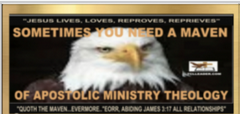


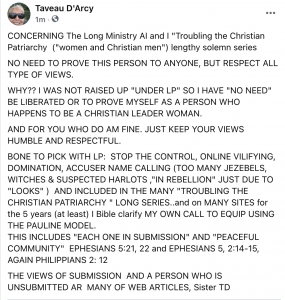




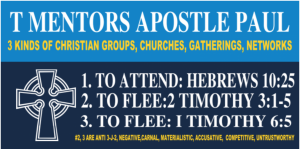
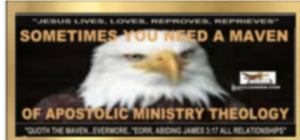



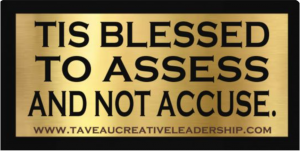
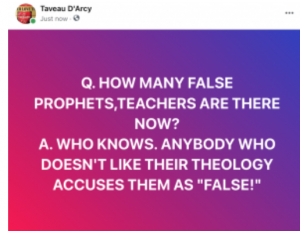
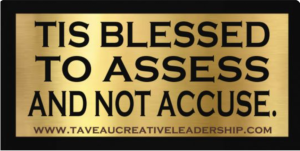
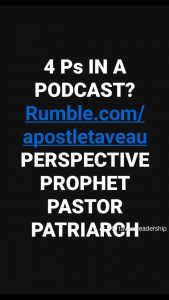
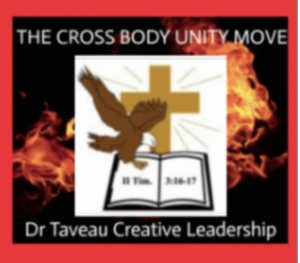
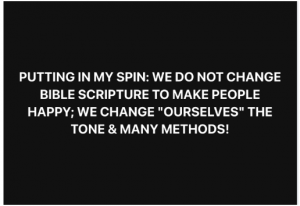



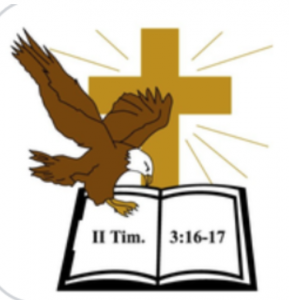

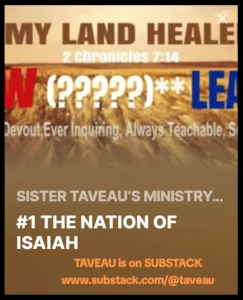
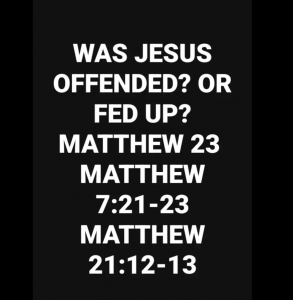
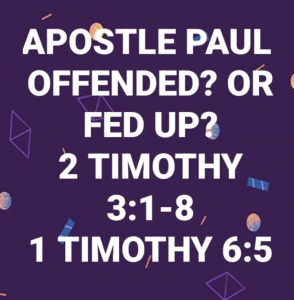
 “They have forsaken the LORD, they have provoked the Holy One of Israel unto anger, they are gone away backward.” (Isaiah 1:4)
“They have forsaken the LORD, they have provoked the Holy One of Israel unto anger, they are gone away backward.” (Isaiah 1:4) Modern Parallel:
Modern Parallel: Revival comes when preachers boldly preach repentance instead of entertainment.
Revival comes when preachers boldly preach repentance instead of entertainment. Reject God and face judgment
Reject God and face judgment A Prayer for Revival
A Prayer for Revival